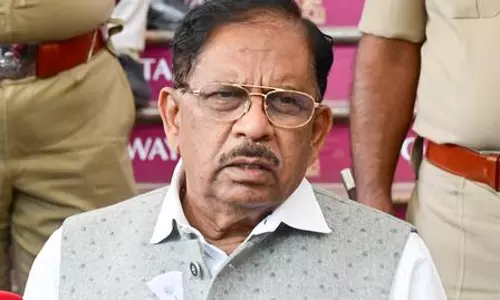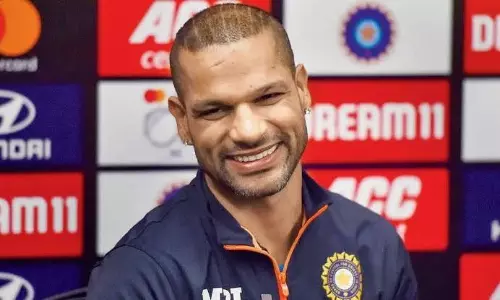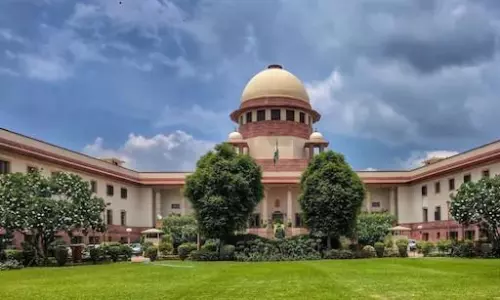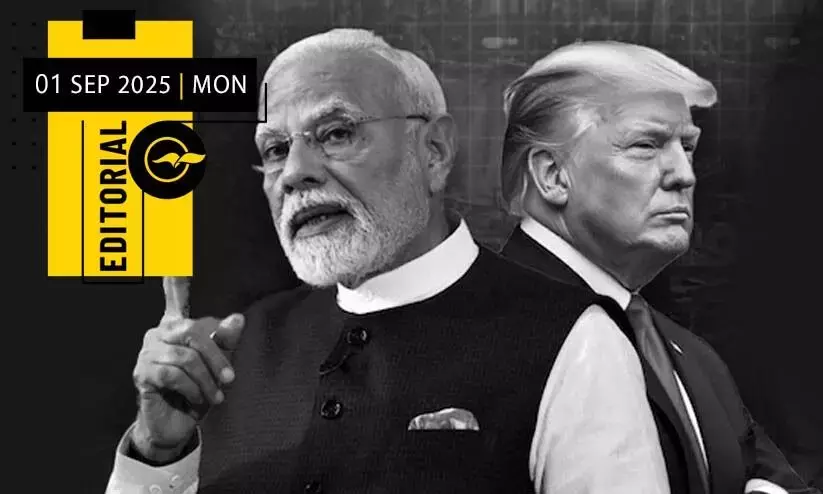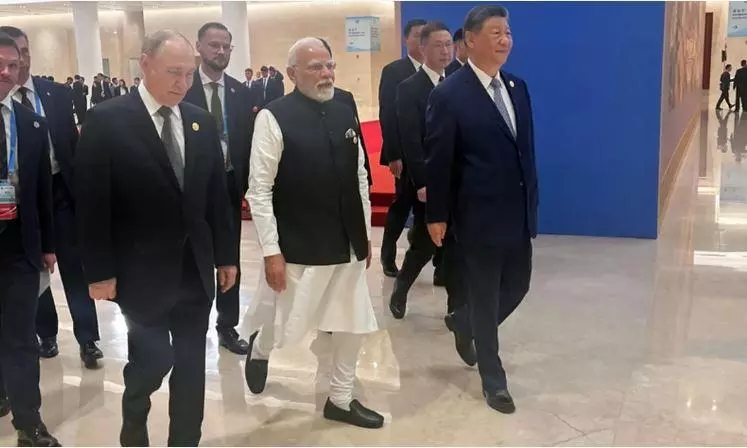
The message from the Shanghai Summit
text_fieldsThe Shanghai Cooperation Organization summit in Tianjin, China ended undeniably with new hopes. The delegates of ten countries including India, Pakistan, China, Russia, and Iran, met in Shanghai, China. Formed in 1996, it is true that this regional grouping has not yet made any commendable steps. There is no sign of thawing in the bilateral relations between member countries including India-Pakistan and India-China. In contrast, the relations between the two neighbours in the subcontinent are apparently more strained than before. This year, India and Pakistan were embroiled in a military standoff in the wake of the Pahalgam terror attack. India's relations with China worsened following the military standoff in the Galwan Valley in eastern Ladakh. However, the official declaration of the Shanghai Summit raised hopes of having positive changes even in this worrying situation. Indian Prime Minister Narendra Modi can be content with having the meeting, which was openly critical of terrorism, included Pahalgam in condemning. Earlier Indian Defence Minister Rajnath Singh walked out of the SCO Defence Ministers' Meeting after other member countries refused to include the Pahalgam terror attack in the declaration. However, the summit this time round was ready to stand by India's uncompromising stand. The meeting also condemned the mass killing of innocent people in Pakistan’s Balochistan by terrorists after hijacking a train. All member states of the United Nations are primarily responsible for exposing terrorism, no matter wherever and whoever commits it for whatever reasons, and deal ruthlessly with the terrorists. The signatories to UN resolutions often choose to either support or remain silent on terrorist attacks against their enemies to foster domestic interests. India's relationship with Canada soured after the country adopted a soft approach towards Khalistan terrorists. The Shanghai Summit's strong condemnation of the Israeli attack on Gaza and the US-Israeli attack on Iran is no small achievement. Indian Prime Minister Narendra Modi, who had remained silent over both attacks, took a different approach at the Shanghai Summit as a welcome change in stance. It is no longer possible for democratic India to pretend to overlook the horrific genocide carried out by Israel against Palestine, breaking all boundaries of humanity.
What made the Shanghai Summit so noteworthy was the visible thaw in India-China relations. As it is evident that Trumps is seeking to control the two largest Asian countries, representing 2.8 billion people in the world by imposing punitive tariffs, it is important to hit back in the same coin. Otherwise, it will lead to financial losses and damage to reputation. Our products may not get same market as they do in the US; some Chinese products may not be on a par with those in the United States. If India and China can move forward with mutually beneficial trade despite all odds, Donald Trump will have to face pressure from his own country. The main reason by Trump is fuming at India-China-Russia cooperation is that his economic sanctions against Russia are not fully effective as India buys Russian crude oil, refines it, and sells to European countries. At the same time, the US imports from Russia everything it needs. The United States, the European Union, India, and China jointly working to end the war in Ukraine as early as possible is the only solution for political and economic problems. No matter whatever alliances or coalitions the rulers of major world powers form alongside organising summits while seeking to foster their power and authority, all such moves will remain stuck in a grove.




